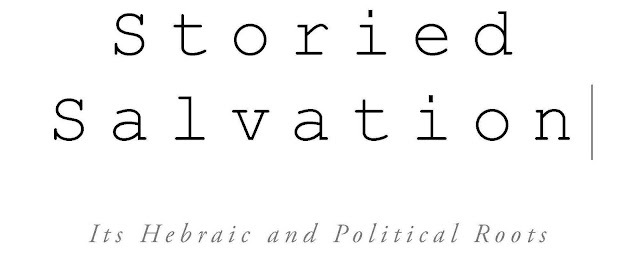John
This Gospel is interested not only in OT fulfillment but showing
Jesus as the climax which scriptural history has pointed. Within salvation-history,
John highlights the respective roles of Abraham, Moses and Isaiah as
particularly important. In John, Jesus indicates that these individuals were
pointing towards him as the fulfillment in God’s final redemption of Israel (salvation
is of the Jews), and the gentiles by way of inclusion.
"In the gospel of John not only is Jesus identified as
‘savior,’ an interpretation of his name . . . but the object of salvation is
frequently identified as ‘the world’ (Grk. kosmos) the created order now
at enmity with God and therefore in need of salvation through Jesus
(John 8.16-17; 12.47; cf. Rev. 12.10-12). A large number of personal names
are derived from the Hebrew root yš, including those of Moses' successor
Joshua, the prophets Hosea, Isaiah, and probably Elisha, the Moabite king
Mesha, and Jesus (a Grk. form of Hebr. yēšûa; see Matt. 1.21
John 4.42; Acts 5.3 1; Phil. 3.20; Eph. 5.28; Titus 1.4; 2 Pet. 1.1); in all of
these names God rather than the person with the name is explicitly or
implicitly the agent of salvation. The exclamation transliterated ‘Hosanna’ is
also from this root.”[1]
Dualism
It is also worth noting that the Platonic view of dualism,[2] where one’s “soul is saved,”
does not have its root in OT or NT theology. A passage used to support this theory
is Luke 21:19,
“By your endurance you will gain
your souls” (NRS).
Within this paradigm, the soul is separate from mortal
existence; therefore it’s the soul that is saved. The body is left behind upon
death and replaced with a new “resurrection” incorporeal body. In this view, a
redefinition of “you,” is essential. Here the individual is the combination of
the soul (immaterial) and the mortal tent, i.e. the human shell (material), in
which they dwell. One of the problems with this is that only part of you is delivered upon death, not all of
you.
Other translations correct this issue by rendering the verse similar to
the NASB, “you will gain your lives.” In Hebraic understanding, the Greek
concept of “soul” is impossible. The Greek word in question, psyche has historically been translated soul, no doubt from its use in Greek
philosophy. In context, “salvation of life” is what is being presented. God is
the God of the living (cf. Matt 22:32; Mk 12:27; Lk 20:38) and it is lives not souls that are in need of
deliverance.[3]
The Platonic and Augustinian idea of soul
is in need of correction.
“For the first Christians, the ultimate salvation was all
about God’s new world, and the point of what Jesus and the apostles were doing
when they were healing people or being rescued from shipwreck or whatever was
that this was a proper anticipation of that ultimate salvation, that healing
transformation of space, time, and matter. The future rescue that God had
planned and promised was starting to come true in the present. We are saved not
as souls but as wholes.”[4]
[1]
Meier and Metzger, Oxford Companion to the Bible, 669-70.
[2]
This is the popular view that human beings are compartmentalized into body and
soul (sometimes with a side of spirit).
[3]
For a short treatment of this see in OT John Walton, Ancient Near Eastern Thought and the Old Testament: Introducing the
Conceptual World of the Hebrew Bible (Baker Academic, 2006), 210-14.
[4]
Wright, Surprised by Hope, 211.


No comments:
Post a Comment